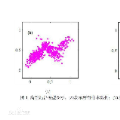Movement generation, and especially generalisation to unseen situations, plays an important role in robotics. Different types of movement generation methods exist such as spline based methods, dynamical system based methods, and methods based on Gaussian mixture models (GMMs). Using a large, new dataset on human manipulations, in this paper we provide a highly detailed comparison of three most widely used movement encoding and generation frameworks: dynamic movement primitives (DMPs), time based Gaussian mixture regression (tbGMR) and stable estimator of dynamical systems (SEDS). We compare these frameworks with respect to their movement encoding efficiency, reconstruction accuracy, and movement generalisation capabilities. The new dataset consists of nine object manipulation actions performed by 12 humans: pick and place, put on top/take down, put inside/take out, hide/uncover, and push/pull with a total of 7,652 movement examples. Our analysis shows that for movement encoding and reconstruction DMPs are the most efficient framework with respect to the number of parameters and reconstruction accuracy if a sufficient number of kernels is used. In case of movement generalisation to new start- and end-point situations, DMPs and task parameterized GMM (TP-GMM, movement generalisation framework based on tbGMR) lead to similar performance and outperform SEDS. Furthermore we observe that TP-GMM and SEDS suffer from inaccurate convergence to the end-point as compared to DMPs. These different quantitative results will help designing trajectory representations in an improved task-dependent way in future robotic applications.
翻译:运动的生成,特别是一般化到不可见的情况,在机器人的生成中起着重要作用。我们对这些类型的运动生成方法进行了不同的比较,例如基于样板的方法、动态系统的方法和基于高斯混合模型的方法。使用关于人类操纵的大型和新的数据集,本文对三种最广泛使用的移动编码和生成框架进行了非常详细的比较:动态运动原始(DMPs)、基于时间的高斯混合物回归(tbGMR)和动态系统稳定的估算(SEDS)。我们比较了这些框架,以其运动编码效率、重建精确度和移动总体化能力为基础。新的数据集由12人实施的9项物体操纵行动组成:摘取和放置,上下、内置/取、隐藏/覆盖,以及推/拉动,共7 652个移动示例。我们的分析表明,对于运动的编码和重建DMPPs,如果使用足够的帮助内核含量,参数和重建精确度是最有效的框架。在SEMMM-G-G-G-G-G-G-G-L-G-G-G-G-G-L-G-G-G-L-G-G-G-G-G-G-L-G-G-G-G-G-G-G-G-G-G-G-G-Ient-L-L-L-L-L-L-L-G-G-G-L-G-L-L-G-G-G-G-L-G-G-G-G-G-G-G-G-G-G-G-G-G-G-G-G-G-G-G-G-L-L-L-L-L-L-G-L-I-L-L-L-L-L-L-L-L-G-G-L-L-L-L-L-G-L-L-L-L-L-L-L-G-L-L-L-L-L-L-L-L-L-L-L-L-L-L-L-L-L-L-L-L-L-L-L-L-L-L-L-L-L-L-L-L-L-L-L-L-L-L-L-L



